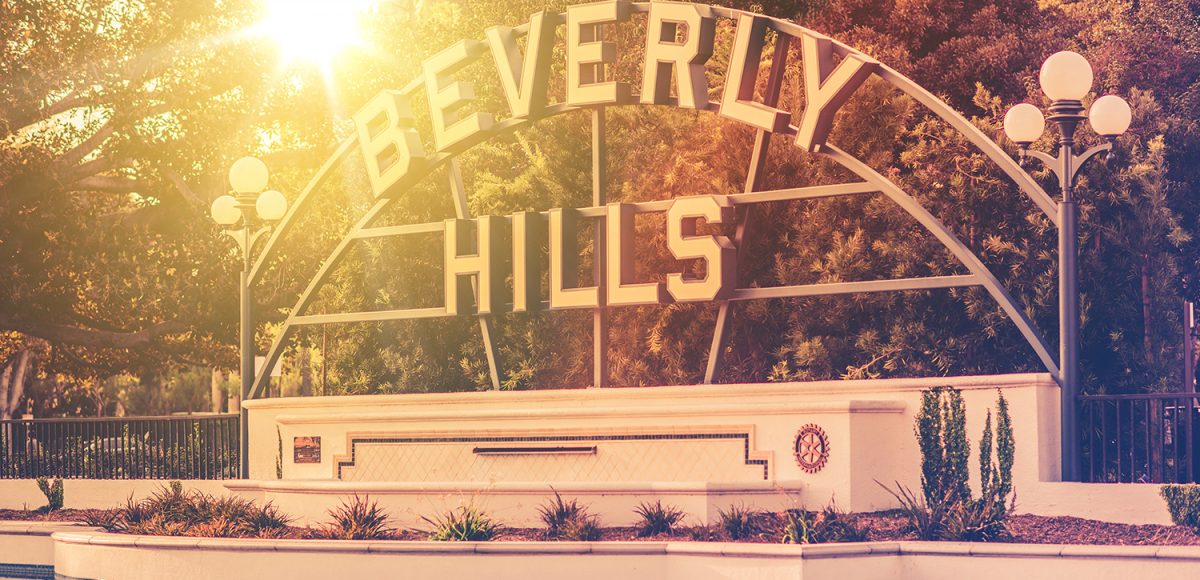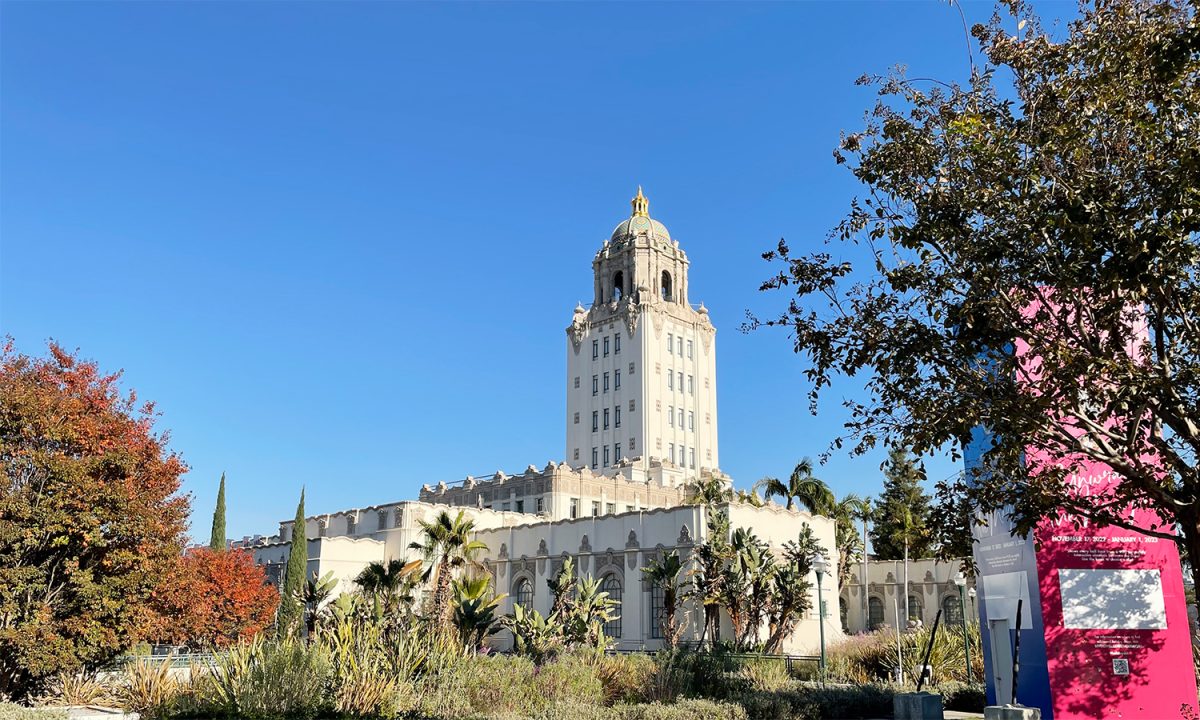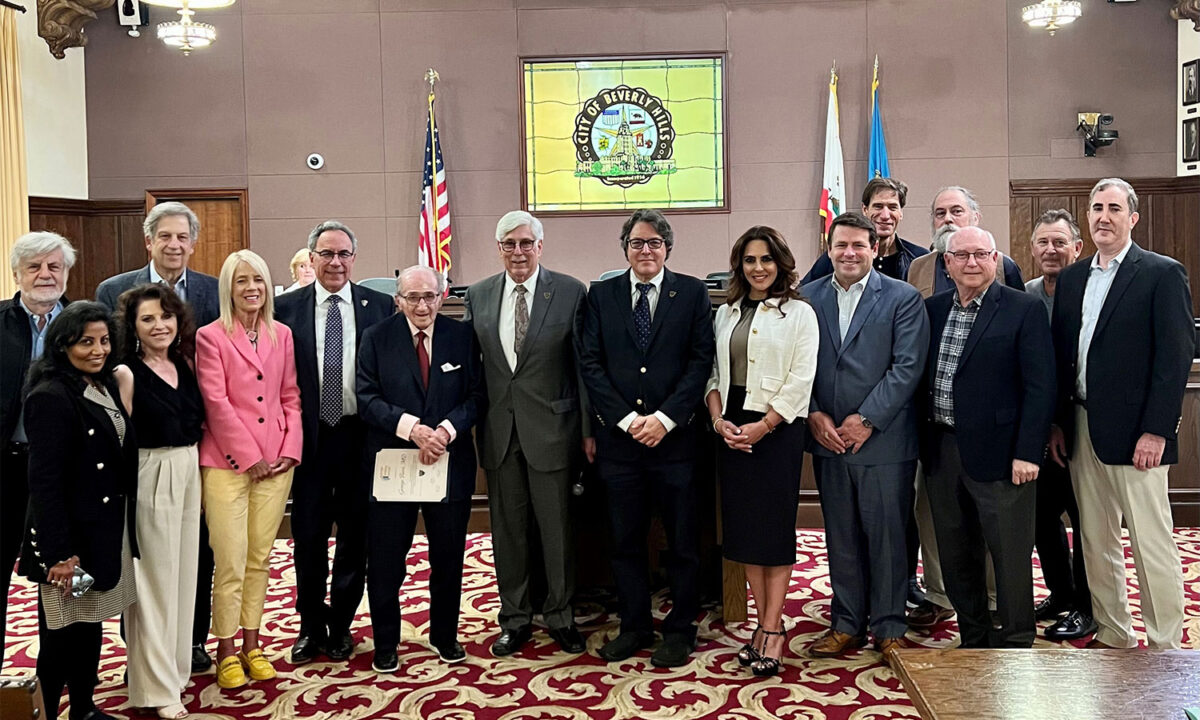The city of Beverly Hills currently only allows delivery of medical marijuana from state-licensed dispensaries based outside of the city’s jurisdiction. On June 26, a City Council Liaison/Planning Commission Committee conducted a special meeting to determine whether that rule must now be changed. It was held in light of the forthcoming implementation of Senate Bill 1186, a state law known as the Medicinal Cannabis Patients’ Right of Access Act. As of Jan. 1, 2024, the law will prohibit local governments from adopting or enforcing regulation that prevent the delivery of medical cannabis to patients or caregivers within their jurisdictions. Introduced by State Senator Scott Wiener, whose district includes San Francisco, the bill was approved by both branches of the state legislature and was signed by California Gov. Newsom in late 2022.
The June 26 meeting was convened with the goal of seeking direction on the implementation of Wiener’s bill in Beverly Hills. The Planning Commission Council Liaisons—Vice Mayor Lester Friedman and Councilmember Lili Bosse—took part in the discussion.
While the city of Beverly Hills is bordered by jurisdictions where marijuana is legally available in dispensaries, including West Hollywood and Los Angeles, Bosse made her anti-cannabis views clear.
“I do not support us having marijuana dispensaries in our city…my views have not changed,” she said. “That still doesn’t address the question of what the state law is requiring of us now.”
Marijuana is legal in California, which was the first state in the nation to allow for the medical use of marijuana upon the passage of Proposition 215 in 1996. In Beverly Hills, in fact, 64 percent of voters approved Proposition 64, which, passed in Nov. 2016, legalized recreational marijuana under state law.
Senate Bill 1186 says the city cannot deny the establishment of physical premises from which the non-storefront retail sale for delivery of medicinal cannabis is conducted. According to a city memorandum, however, this can be reasonably regulated in several ways, including via zoning requirements, security or public health and safety requirements, licensing requirements and imposing or collecting taxes on retail sales of medicinal cannabis occurring with the city.
The discussion at the June 26 special meeting also included Planning Commission Chair Myra Demeter and Beverly Hills Assistant City Manager Ryan Gohlich. Each weighed in on what they wanted to include in the update to the city code in response to SB 1186. In addition to allowing for the non-storefront retail sale by delivery of medical cannabis—the minimum required by the new state law—did city leaders want to allow for in-person sales and delivery from a storefront in Beverly Hills?
The consensus was against storefronts. In fact, participants spoke in favor of putting in place the most stringent restrictions possible while abiding by the new state law.
Failure to take any action at all could, according to a city memorandum, lead to legal consequences. Senate Bill 1186 empowers several entities to take civil action if they believe the city’s regulations to prohibit access to medicinal marijuana are not reasonable.
Those entities include qualified patients and their caregivers; the state attorney general; and medical cannabis businesses.
Bosse expressed concern about enforcement once the state law goes into effect, saying she believes not all of those with prescriptions for medicinal marijuana would have “legally valid prescriptions.”
Gohlich, however, attempted to alleviate that specific concern, saying he “imagined it would be very unlikely someone would take the step to get a fraudulent prescription for it,” given how widely available it is recreationally, without a prescription, in surrounding areas.
Going forward, an ordinance regarding updates to the municipal code in response to the new law will be drafted by the Planning Commission before it goes to the City Council.
One could argue Wiener’s legislation undermines the power of a city to regulate its own commercial activities.
Nevertheless, Demeter told the Courier, Beverly Hills is committed to adhering to the rules.
“I don’t know what the cache of a Beverly Hills address will do for medical marijuana, but this is the law,” she said, “and we have to follow the law.”





